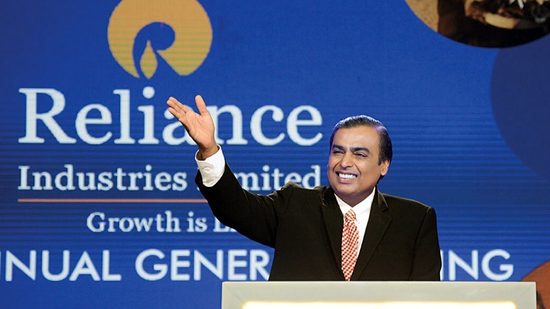The Bombay Stock Exchange (BSE) has introduced Electronic Gold Receipt (EGR) on its platform, which will help in the quick and accurate determination of the metal’s price.
The Securities and Exchange Board of India (Sebi), which regulates capital markets, has given the stock exchange BSE final approval to launch the Electronic Gold Receipt (EGR) sector on its platform.
The exchange executed multiple mock trades in the test environment for exchange members to enable trading in EGRs after receiving in-principle authorisation from Sebi in February.
A proposal for a gold exchange, where the yellow metal will be traded in the form of EGRs and contribute to establishing a transparent domestic spot price discovery process, has already been approved by the Sebi board. In contrast to many other nations, India now only allows trading in gold derivatives and gold exchange-traded funds (ETFs).
With trading, clearing, and settlement features similar to other securities already traded in India, the instruments representing gold will be known as EGRs and notified as securities.
During the Muhurat trading on Diwali, it introduced two new products with a 995 and 999 purity rating. Deliveries will be made in multiples of 10 and 100 grammes and trading will be done in multiples of 1 gramme.
9 a.m. to 9 p.m. are the hours the EGR market will be open. T+1 will be used for settlement.
With an estimated 800-900 tones of annual gold demand, India ranks as the second-largest gold consumer in the world and is a significant player in international markets. India has only ever been a price-taker on the international markets, despite being the country that consumes gold second only to China.
To solve the problem, the Indian government has allowed the establishment of a gold market where the metal will be traded on Indian exchanges in the form of Electronic Gold Receipts (EGR) (BSE, NSE etc.) EGR enables effective gold standardisation and price determination, transaction transparency, support for the India Good Delivery Standard, and settlement guarantee to investors.
All market participants, including individual investors and business participants along the value chain including importers, banks, refiners, bullion brokers, jewellery producers, and retailers, will be catered to by EGRs.
“The introduction of EGRs marks a crucial turning point for the worldwide bullion sector as well as the BSE. BSE is dedicated to consistently facilitating our stakeholders’ access to high-quality investment-based products and services, “BSE’s CBO, Sameer Patil, said.
What is an EGR?
Similar to the dematerialized form of shares, electronic gold receipts are issued in exchange for physical gold (similar to physical form of equity shares).
The trading, clearing, and settlement aspects of EGRs will be similar to those of other securities now traded in India.
The physical gold for EGRs is sourced via imports, authorised domestic refineries, or designated delivery sources.
Who is in charge of EGR?
According to the SEBI gold exchange framework, vault managers who are SEBI accredited shall handle the e-receipts.
Along with creating the EGRs, the vault managers are also in charge of other tasks like withdrawals, deposits, and complaint resolution.
The vault manager will need to have a net worth of at least Rs 50 crore, according to the SEBI gold exchange framework.
How can physical gold be converted into EGR?
A request for physical gold against an EGR must be made by the EGR’s beneficial owner to the Depository.
Such requests will be forwarded by the Depository to the Vault Manager. The Vault Manager shall provide the necessary data with the Depository for reconciliation after delivering the gold to the beneficial owner and immediately extinguishing such EGR/s.
To make the appropriate revisions to the records, the Depository will communicate information about extinguished EGRs to stock exchanges and clearing corporations.
At the time of physical gold withdrawal, if there are any quality-related disputes, they will be resolved by getting a quality report from an appointed assayer.
However, no disagreement relating to the quality of the gold shall be addressed / settled under this framework once the actual gold has left the vaulting infrastructure.
How to invest in EGR?
Before investors may trade in gold, gold must first be transformed into a Demat account, which is similar to share trading. This gold will be stored in vaults, and ERG will supply the vault manager.
The Gold Exchange will provide the ability to trade in EGRs, convert EGRs back to gold, and convert Gold into EGRs.
How to get the delivery of Gold?
Ten grams and one hundred grams of gold can be provided. 100 grams of gold will only be delivered in bars; deliveries of 10 grams of gold may be made in the form of a coin or a bar.
The gold will be delivered door to house from the 22 places where there are vaults in India by the companies Brink’s India and Sequel Logistics.
What is the functioning of the Gold Exchange?
The gold exchange will make it easier to trade gold via electronic gold receipts (EGR). EGRs will have similar trading, clearing, and settlement functionalities to other securities like equities.
Investors have the option of converting their physical gold into EGRs. The EGRs will be valid forever, so the recipient may hold them for as long as they choose.
They can even return it to actual gold by giving up their EGR. According to Divya Grover, a research analyst at PersonalFN, “The Clearing Corporation would settle the trades made on stock exchanges by distributing EGRs and cash to the corresponding buyer and seller.
Banks, foreign portfolio investors, jewellers, and bullion dealers can all trade on the gold exchange in addition to retail investors.
Why do we need EGR?
EGIR uses an exchange with clear pricing and liquidity to persuade people to not hoard gold (to cash or back to gold)
India is a net gold importer. Moving from being price takers to price setters is the goal.
Thus, price transparency in the gold market will result from price discovery at the exchanges.
A platform for EGR will reduce current market inefficiencies and inject transparency into gold spot transactions, allowing India to emerge as the price-setter.
Another investment avenue
Investors in gold would have another investment choice if electronic gold receipts were available. Gold futures and options are traded in India, but spot gold trading would open up a new market, claims brokerage Angel One.
Spot trading entails purchasing and selling assets at the spot price, also known as the live market price.
Aside from purchasing real gold in the form of coins, bars, or jewellery, India also offers gold exchange-traded funds (ETFs), sovereign gold bonds (SGBs), and digital gold.
How will it be taxed?
If the investment is kept for more than three years, these proceeds will be subject to capital gains tax of 20%, much as gold ETFs.
In this situation, the investor may benefit from indexation, which enables the calculation of tax net of the mandated inflation rate.Everything You Should Know About IPO (moneynotsleep.com)





